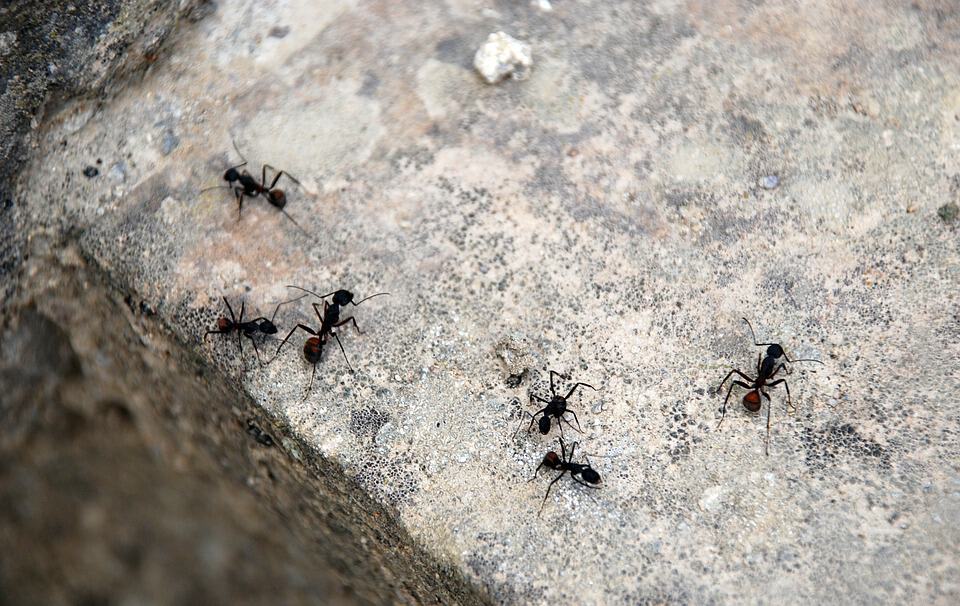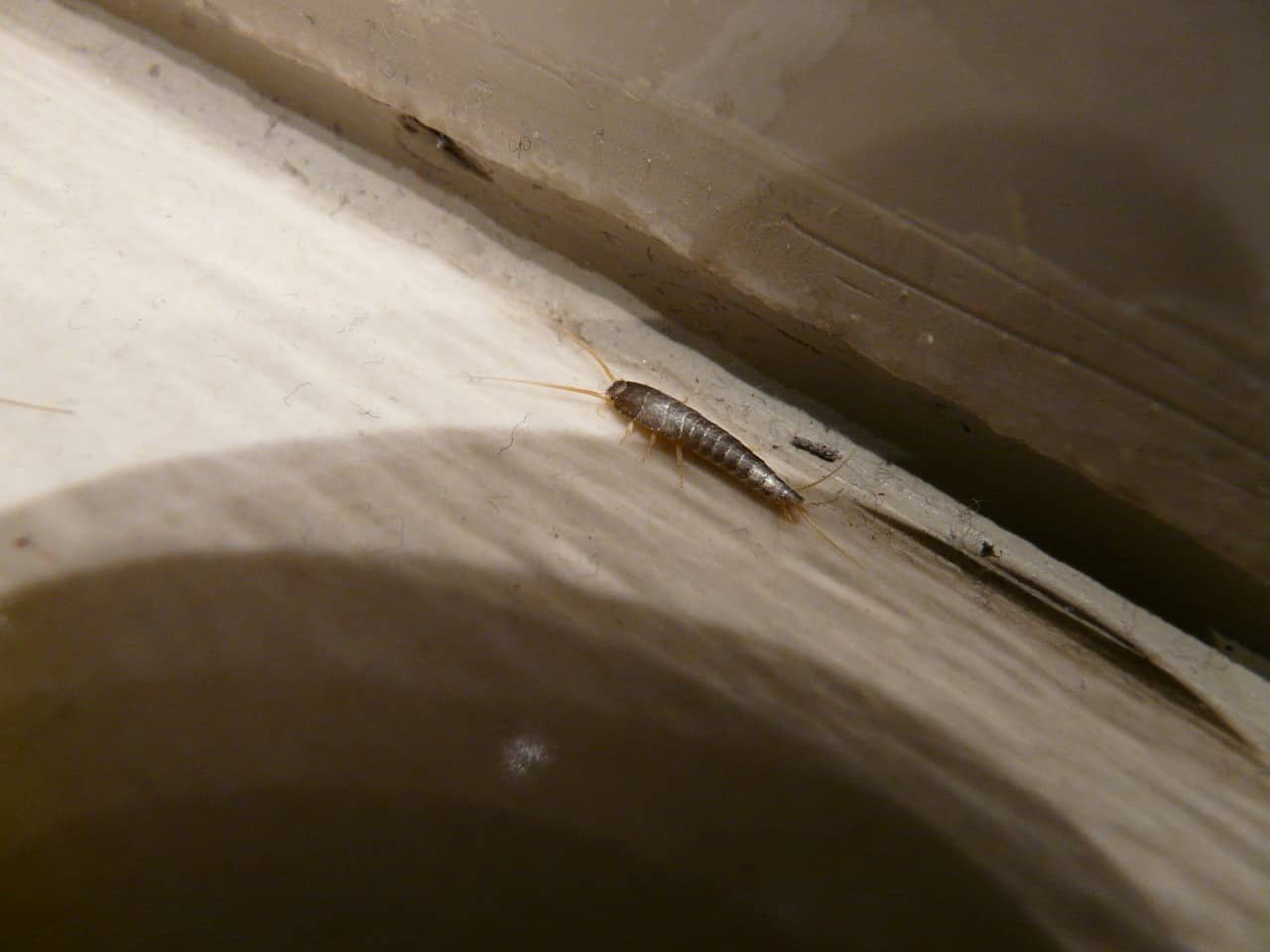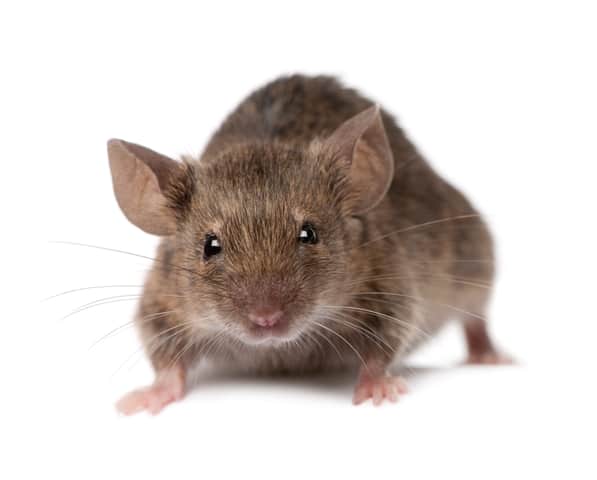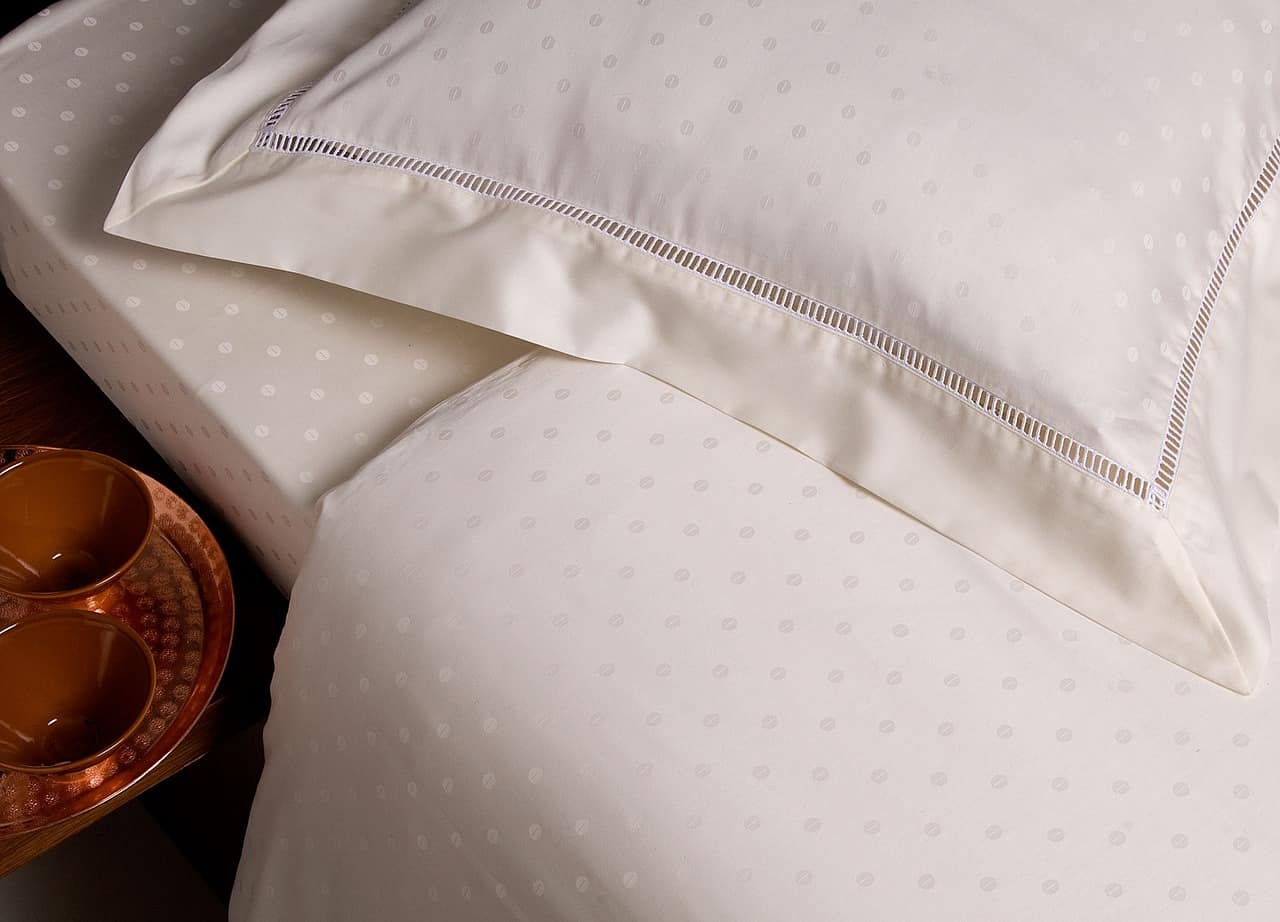Summertime is great, but as for the many pests it brings? Not so much. Because the warmer months bring so many creatures out of hibernation, homeowners across the country often see a spike in pest activity during summer.

Here are some of the most common summer pests, along with strategies to prevent their entry into your home and ideas to get rid of them once and for all.
How to Repel Mosquitoes
Mosquitoes aren’t just annoying, they can transmit diseases like the Zika virus. Preventing them from getting inside starts in the yard — you’ll want to make it as undesirable to insects as possible.
Regularly check for sources of standing water: Stagnant water can provide a place for mosquitoes to lay eggs (and provide nourishment to other insects in general). Look anywhere that water could have accumulated from a summer rainfall:
- Holes or ditches around the yard
- Garbage bins
- Buckets
- Flowerpot saucers
- Gutters
- Storage sheds and bins
- Tires
Remove bird baths: Birdbaths will tend to work against your cause, but if you have one, empty it out and scrub it with a brush at least once every few days. Refreshing the water regularly means eliminating any mosquito eggs before they have the chance to hatch. You can also add an aerator or other rippling effects to create an unstable surface that mosquitoes can’t land on, but won’t affect the birds.
Use Natural Repellants: Natural mosquito repellants are a safe, effective alternative to pesticides and can be sprayed throughout your yard. Natural substances like lemon eucalyptus oil, thyme oil, lavender, and citronella are safe and smell great! Concentrate on areas in which you spend a lot of time, like the porch or kids’ playground, and water-prone sections like the pool, backyard ponds, and areas with sprinklers.
Ensure windows are secure: Make sure windows and doors are well-insulated, repairing torn screen if necessary, to keep mosquitoes and other insects from getting inside. If you’ve been noticing consistent indoor pest problems, search all around the house for cracks, gaps, or holes and seal them accordingly. The entire family should also make a conscious effort to limit the number of time doors are left open while they come in and out of the house — the less opportunity for the bugs, the better!
For persistent, serious problems, reach out to a pest control specialist!
Keeping Ants Away
Extra strong sealing: Proper sealing around the exterior of your house is your strongest line of defense against ants, which can squeeze through all kinds of tiny crevices. Foam or caulk is often enough to keep even the tiniest of ants out.
Eliminate ant-temptations: Get rid of as many temptations around the outside of your home, as well; don’t leave half-empty soda cans out overnight, and keep food covered during summer barbeques and parties. If ants find food, they leave a scent trail for their friends to find, and the problem can escalate more quickly than you’d expect.

Seek natural remedies for small issues: There are all kinds of natural remedies that can not only prevent ants from entering your home in the first place but help address an existing problem. Lemon juice, cinnamon (in both powder and oil form), and peppermint oil can all help destroy the scent path left by ants, halting their entry into your home.
Create a trap: For lingering ants, you can create a borax, sugar, and water solution to act as toxic bait: they’ll be attracted to the sugar and take it back to their queen (without leaving an effective trail). Once the queen has died, the colony will soon follow, and your ant problem can be a distant memory. Make sure the bait is placed out of reach of pets and small children.
Shooing Away Fruit Flies and House Flies
Keep doors and windows closed: Keeping an eye on open doors and windows is perhaps the most effective way to keep flies from entering your home. Repair any torn screening, and if you have air conditioner units (instead of central air), make sure they are securely insulated all around. Natural repellants can be made from just about anything, including household herbs, essential oils, vinegar, lemon juice, and even pennies.
Reduce sources of attraction: Don’t keep ripened fruit or vegetables outside of the refrigerator. Keep garbage cans clean and thoroughly clean anything you put into recycling containers. Avoid leaving out juice, wine, and sugary beverages.
Create a trap: To quickly address a serious fly issue in your home, you can create your own trap with only a cup, paper, tape, and honey. Flies will be attracted to the honey and quickly seek it out, but will become trapped once they enter your contraption. Be prepared to make a few traps depending on how large the affected area is and the severity of the issue. Give it up to a couple of days, implementing your natural repellants as well, to ward off the last of the flies.
Getting Rid of Silverfish

Declutter: Decluttering your home and garage is a great first step in preventing silverfish, especially when it comes to old cardboard, newspapers, and stacks of mail. If you have any clothes in storage, keep them in a cool, dry place in sealed containers.
Reduce moisture buildup: Keep the house well-ventilated throughout the year — especially in bathrooms, basements, and attics. Additionally, clear the perimeter of your house of excess debris like leaves and branches to eliminate potential sources of moisture and insect shelter.
Go Natural: As with many summer pests, silverfish can be controlled with natural deterrents, many of which are both pet- and kid-friendly. Cucumber peels, garlic cloves, citrus peels, cedar shavings, and cinnamon can all be placed in problem areas to deter silverfish from entering your home. For storage, naphthalene balls (moth balls) can be used to keep these insects at bay, especially when it comes to clothing.
Avoiding Fleas and Ticks
Use repellent: First, make sure each person wears insect repellent before going outside for long periods of time, especially if you’ll be in wooded areas. Avoid interacting with any animals you aren’t familiar with, including strays, that could be carrying fleas, ticks (which may carry Lyme disease), or other parasites. Also, treat your dog with flea and tick repellent oo!

Check yourself: When returning from time outside, check yourself, your family, and your pets for ticks. Inspect your clothing, shoes, and hats first, then look carefully through hair, in and around ears, under arms and behind your knees. Check especially small crevices, including the inside of belly buttons.
Shower quickly after outdoors: Shower within two hours of coming inside to make sure you wash off anything you could’ve missed, even re-checking areas to be sure you’re clear. Remove any ticks you do find with tweezers, pulling them straight up in a steady motion. Clean the area afterward with soap and water, iodine, or rubbing alcohol, and visit a doctor right away if you develop a rash or fever within a month of the bite.
Keep the house clean: A thorough cleaning is an important step in getting rid of fleas no matter how serious the problem. Vacuum all carpets, rugs, curtains, and furniture, and immediately discard the bag outside. Wash affected clothing and fabrics in hot water and dry in the hottest settings (take note of any items that might need special care). Keep in mind that if your pet(s) brought in the fleas, they’ll likely be spread all around the house, quite literally anywhere the affected pet has entered. Keep a lookout for bites and scratching for the next few weeks, and seek a professional if the problem persists.
Consult a professional: Fleas are tiny, quick, and often hard to spot. What are immediately noticeable are the bites — they can occur almost anywhere, affect anyone from your infant to your cat, and are incredibly itchy. Treating fleas depends a lot on the severity of the problem, as well as the source. If a problem is so serious that multiple house members (human or otherwise) have bites, it’s best to consult a pest control professional. Experts will be able to identify the major problem areas and instruct you on the most thorough ways to solve the problem, whether it’s a professional treatment or home remedies.
Keeping Out Squirrels and Mice
There is only so much you can do to prevent the general presence of squirrels and mice in your yard since they can be found in just about every kind of setting and climate. You can use fencing to keep them out of your garden, or use strategically-placed motion lighting to shoo them off. Some people even adopt a pet to act as a “guard” against rodent intruders. You should also make sure to properly store all of your food to reduce the likelihood of mice — they can not only smell opened food, they’ll chew through nearly anything to get to it.
Check the perimeter of your home
- Seal cracks and any form of entry outside your home
- Keep attics, closets, garages, and basements clean and dry
- Get rid of any moist locations like leaking pipes
- Store firewood at least 20 feet away from your house
- Keep shrubs and natural foliage trimmed around the house

Use natural repellents: Check the perimeter of both the interior and exterior of your home for major holes or sources of entry, and patch them securely. Deter them from coming back by using some natural repellents, including:
- Nutmeg and cinnamon mixture
- Hot peppers or hot sauce
- Apple cider vinegar
- Citrus peel
- Safflower seeds (for your bird feeder)
- Peppermint oil
Try one of these repellents not only in areas you’ve seen the rodents before but any new spots that look vulnerable to entry. As always, seek professional pest control services for major rodent problems.
Preventing Bats in Your Home
Despite their bad reputation, bats aren’t aggressive toward humans in general. However, they can be dangerous if they invade your home because they could carry rabies or other hazardous diseases.
Search your home: You’ll conduct a similar house inspection as with other pests, but this time, check for holes and crevices up high — including the attic. Use wood, form, caulk, or any other strong material to seal problem areas.
Make your home unappealing to bats: Though there aren’t any known effective natural repellents, you can creatively adapt your house to be less appealing to bats. You can hang aluminum foil to reflect both light and sound, both of which will keep bats at bay. Mirrors lined up with security lights can also deter their presence, though you’ll want to make sure the beam won’t disturb your neighbors.
Cover points of entry: If you know you have a problem with bats, stand outside at dusk (when bats emerge from their daytime naps) to identify where they are coming from. Cover points of entry with bird netting or clear plastic sheeting, allowing the creatures inside to crawl out and leave but not return. Once you know they’re all gone, patch the area permanently and use whichever repellent method you’ve found to be successful.
Avoiding and Treating Bedbugs
One of the worst things about bedbugs is that you don’t necessarily do anything wrong to get them — you just do. They could transfer from another passenger to you on your morning train commute, move from one child to another at daycare, or hitch a ride in your suitcase from a bad hotel and follow you home. Investing in a mattress cover is the closest step you’ll find to bed bug prevention: it won’t stop you from getting them, but it will prevent your mattress from becoming infested and having to be thrown out.
Regularly inspect your bedding: Regularly inspect all mattresses in the home for signs of bed bugs throughout the summer. Use a penlight (UV lights are particularly handy) and look closely at every groove, pocket, and crevice. Inspect sheets before washing them in hot water. Be on the lookout for any signs of extra itching from your family; the sooner you identify the problem, the sooner you can address it.
If you do find evidence of bed bugs or are suspicious but ultimately unsure, call a pest control specialist immediately. It’s always better to get an inspection just in case because the problem can quickly spiral out of control. Follow their directions absolutely and exactly as they are instructed. Steps will include:
- Washing and drying all clothing on the hottest settings. Delicate fabrics will often be fine with only 30 minutes in the dryer on the hottest setting.
- Storing all clothing in garbage bags until the treatment is completely done. Often, there are multiple treatments over the course of weeks, so you may be living out of bags for an extended period.
- Inspecting all furniture closely for bed bugs. Some may need to be thrown out completely — be sure to mark them so people know they’re infested.
- Vacuuming every inch of the house and furniture, immediately disposing of bags afterward.

Don’t take shortcuts: Avoid the temptation to take any shortcuts when it comes to implementing bed bug control procedures. The more thorough you are, the more effective treatment will be and the sooner you can get back to feeling completely at ease in your own home. And if you find signs or are suspicious, contact a pest control specialist immediately.
Getting Rid of Roaches
Cleaning and home maintenance: In addition to sealing up potential points of entry for roaches, conscious cleaning and home maintenance are key to keeping them out.
Keep garbage controlled and taken out regularly: Some items are better off taken straight to an outside garbage can (like the packaging from raw meat that can quickly become odorous) or composted (like eggshells and vegetable scraps). Wipe down surfaces where you prepare food on a daily basis, especially after cooking. All food should be kept in secure containers, ideally in pantries or cabinets that are free of food particles and debris.
Avoid leaving dirty dishes in the sink: Also, make sure to thoroughly rinse them before placing them in the dishwasher — cockroaches can get in there more easily than you might think!
Eliminate all sources of standing water and messes: Whether it’s a pot soaking in the sink or a clogged shower drain – it’s got to go. Make sure your children’s and pet’s play areas, both inside and outside, are kept clean and tidy. Vacuum regularly, and if you have children or other messy eaters, be especially thorough with cleaning the pockets and crevices of your couch and dining chairs.
Call a professional! There are options for homemade cockroach bait if you discover an issue, but take note of which are hazardous to pets and young children. Keep in mind that cockroach infestations can escalate rapidly, so if you’ve noticed more than a few in 48 hours, it’s best to call in the professionals. Sometimes, all the cleaning and other homemade remedies just aren’t sufficient to wipe out a serious problem; there’s a reason people joke that only the cockroaches would survive an apocalypse!
Say Goodbye to ‘Stinging’ Insects — Bees, hornets, and wasps
Unfortunately, your beautiful garden is what will make the most impact in attracting stinging insects to your yard.
Reduce the number of flowers and trees: If anyone in your family has insect allergies (or if you even suspect someone might), limit the number of fragrant plants and trees in your yard, as well as bright flowers that will attract bees.
If you discover you have a wasp and/or hornet problem, you can use a homemade repellent around your porch and outdoor seating to deter them.
Call a professional to remove hives or nests: Beehives and wasp nests should be removed by a professional to avoid injury or endangering those around you.

Don’t let summertime pests kill your buzz — prevent what you can and address problems quickly so you can get back to enjoying the sunshine!

 United States
United States Canada
Canada